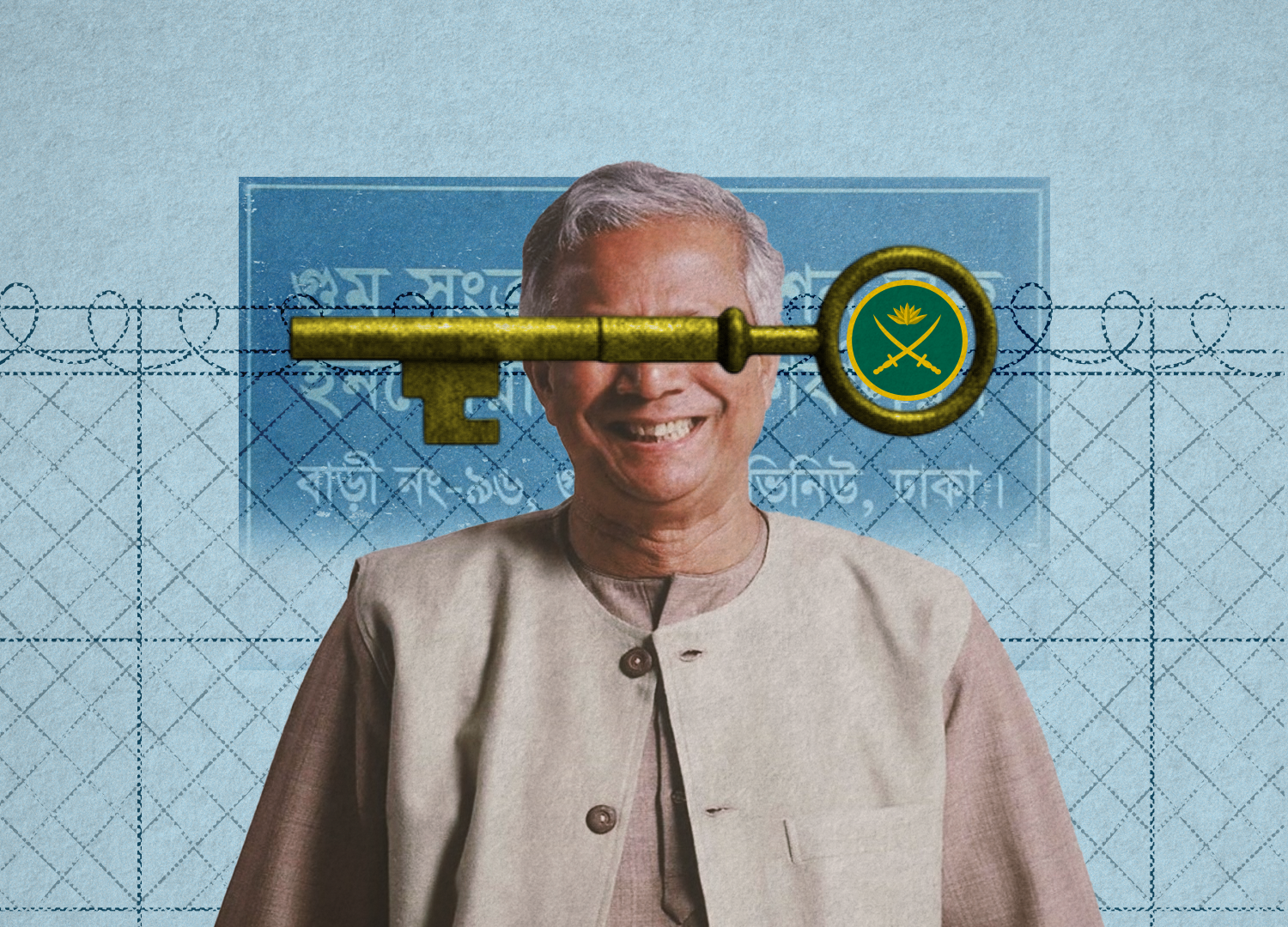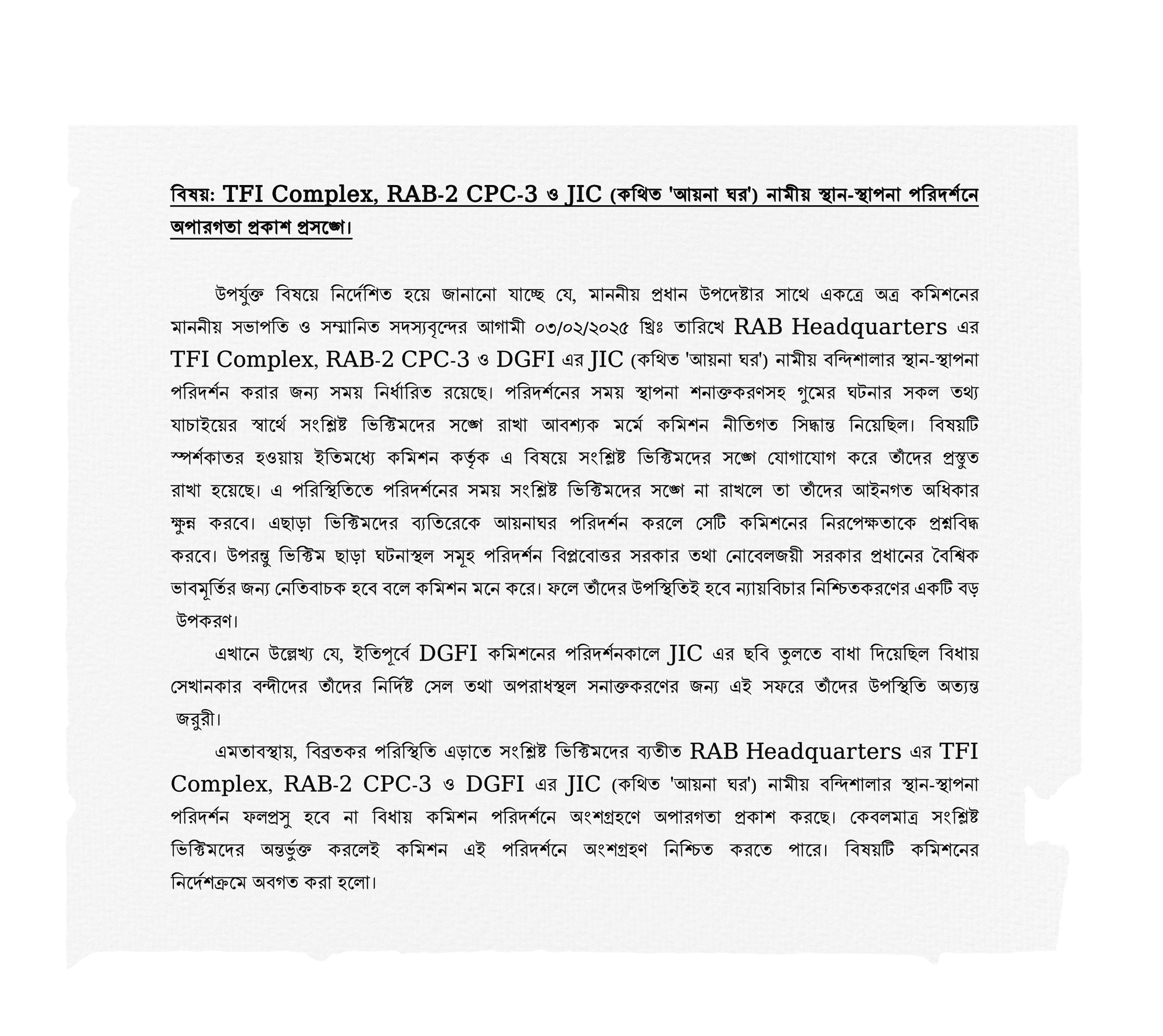No access: Survivors and journalists barred from visiting Aynaghar and TFI
Under military pressure, Yunus stalls inspection of secret detention sites.

A long-anticipated public inspection of Bangladesh’s secret detention centres, including the notorious Joint Interrogation Cell (JIC, Aynaghar) and the Taskforce for Interrogation (TFI), has ground to a halt under pressure from the military, according to four officials familiar with the matter.
The inspection, initially championed by Muhammad Yunus, the head of the interim government, was expected to include journalists, the Commission of Inquiry on Enforced Disappearance, and survivors of enforced disappearance themselves.
Families of victims and human rights activists have for months demanded an independent review of the detention sites, which include facilities run by the Directorate General of Forces Intelligence (DGFI) and Rapid Action Battalion (RAB).
But the Army Headquarters, according to four interim government and commission officials, objected to the participation of survivors of enforced disappearance and journalists in the planned visit.
In late-January, the commission formally warned the Yunus administration in a memo that it would withdraw from the inspection on February 3rd, if survivors were excluded.
“Excluding the victims during the inspection of secret detention centres would violate their legal rights,” reads a copy of the January 29th memo obtained by Netra News. “Under such circumstances, an inspection without the concerned victims would not be effective, and therefore, to avoid an embarrassing situation, the commission is unable to participate in the inspection.”

The dispute underscores concerns about the military’s influence over the civilian interim government — and over Yunus himself, who must rely on the army to improve the country’s raucous law and order situation.
Weeks earlier, in an interview with Netra News on November 18th 2024, Yunus, who additionally holds the portfolio of the defense ministry, talked about his commitment to conducting the public inspection of the secret sites: “A commission has been formed, let the commission complete its work. After that [the detention centres] will be open to everyone.”
“I also want to go, I want to see, and I want to take journalists along with me [to] those [detention centres] that have been identified,” Yunus told Tasneem Khalil, the editor-in-chief of Netra News, adding that he would request a full list of sites that remain undisclosed. “Then we can challenge who is hiding these, who is concealing them. This is very clear, there is no secrecy about it. Everyone everywhere knows what this is.”
At the time, Yunus maintained he had “not faced any obstacles from any direction.”
In a January meeting with the commission, he reaffirmed his intention to visit Aynaghar alongside survivors.
However, officials briefed on sensitive government deliberations say the army now fears a public inspection of the detention centres involving survivors and journalists could tarnish its image.
Many of these sites have existed outside the purview of public scrutiny for years, as the ousted Sheikh Hasina government routinely used them to secretly detain people, including political prisoners, while denying ever doing so.
The Joint Interrogation Cell (JIC), formerly a military-run interrogation facility, was converted into a secret detention centre, Aynaghar, whose existence Netra News first reported in 2021. Another infamous site is the Taskforce for Interrogation (TFI), located in Uttara, which was run by the RAB, an elite police unit under effective military control.
Yunus’ press secretary, Shafiqul Alam, did not respond to a detailed request for comment from Netra News.
It remains unclear whether the chief adviser intends to continue his original inspection plan, modify it to accommodate the military’s wishes, or abandon it altogether. For now, the promised visit, once hailed by rights groups as a turning point in the country’s opaque security apparatus, appears to be in limbo.●